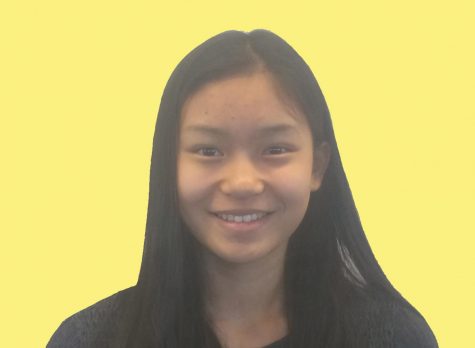SPA through the eyes of a lifer, legacy, new kid, and younger sibling
May 30, 2017
New kid
New students at St. Paul Academy and Summit School have the unique perspective of an outsider that lifers don’t have. They also benefit from experiencing the things that SPA has to offer at an older age, after being exposed to public schools. When Elena decided to attend SPA instead of her regional public school, one of the main reasons was because “I heard about how accepting the community was, and the smaller class sizes”, which was a lot different than she was used to.
This year was Elena’s first year going to a different school without her friends. Like many new kids, she was worried about the prospect of making friends, but the SPA community seemed to live up to its reputation and “a lot of people came up to me on my first day, and they seemed to know my name already which was nice.”
I think it’s easier for me to just go up and talk to new people. — 9th grader Elena Ea
When Elena first started she had the opportunity to view SPA through a new student’s lense, and noticed that “the accepting community is something that they [not new kids] take for granted.” The accepting community is one of the primary reasons that Elena decided to attend SPA, but she thinks that many people who have been here awhile tend to not notice how unique the accepting community is. For instance, “something that I noticed that’s different from a public school is that you can sit by anybody at lunch.”
One thing that Elena has gained from starting a completely new school is the ability to talk to new people. “I think that it’s easier for me to just go up and talk to new people, and I think that that’s an important skill that SPA has taught me.”
Elena is also adjusting to and relishing the amount of free time like X-period, tutorials, and free periods that can be used to meet with teachers, or allow for more work to be done during school. One of Elena’s favorite things about SPA is“ the amount of free time that we have to do homework or just hang out with friends.”
While starting a new school without knowing anyone can be overwhelming, Elena found that the uniquely accepting SPA community made her transition into high school much smoother. When asked how she would describe SPA, “it’s challenging, and can be a bit busy sometimes but there’s a lot of things to learn.”
Lifer
Lifer. The word is spoken in certain circles with a kind of awe. There’s a common understanding that the few lifers in every class are a foundation of the grade. Yet for others, it’s a way of life. For sophomore William Welsh, being a lifer has given him a positive experience in school both academically and socially, and in essence formed his experience at St. Paul Academy and Summit School.
The lifer community is a key part of Welsh’s SPA experience. Being a lifer has allowed him to be a part of a close, small, community of 30 people who are all lifers. While not intimate friends with all of them, Welsh feel comfortable talking to any of them.
“I feel really comfortable around [the lifers], and now we’ve gotten to know each other a lot better, and that’s something that I really enjoy,” Welsh said.
Part of building these relationships is based on shared experiences and stories. For example, when he was nine, Welsh participated in Bike Rodeo, an event where kids brought in bikes and biked around a course. However, while biking around a loop de loop, Welsh fell and broke his arm.
I feel really comfortable around [the lifers,] and now we’ve gotten to know each other a lot better.
— Sophomore William Welsh
“There are quite a few people in my grade that remember how loud my scream was,” Welsh said.
Welsh feels that the lifer community will extend beyond high school, in part because of how long everyone has known each other. He hopes to keep up contact with everyone after graduation.
Academics also affect Welsh’s view of being a lifer. Welsh feels his writing skills in particular have been shaped by his early years at SPA.
“I don’t think [those writing skills] are common amongst all SPA students who aren’t lifers,” Welsh said.
Being a lifer also allowed Welsh to be more comfortable in school. Whether in social circles, the school building itself, or teachers, the familiarity comes from years of contact with these things, and has created a more familiar community, said Welsh.
So perhaps the term “lifer” shouldn’t just be associated with a long-term stay at school, but also with a strong sense of community. Welsh found a strong, and hopefully long-lasting, community in the group of lifers. However, this community also provides an environment in which students can learn to grow mentally, and find comfort across different areas of student life.
Legacy
While some may think that being a “legacy” – a student whose parents or grandparents attended the same school as them- defines a student’s experience and expectations for school, for legacy Isabel Dieperink, that was not the case. Dieperink’s grandmother first attended St. Paul Academy and Summit School back when it was just Summit School. Since then, her parents, aunts, uncles, and cousins have all attended SPA. Initially, Dieperink’s grandparents just wanted a good education close to home, but consistent positive experiences brought consecutive family members to SPA.
I don’t think [being a legacy] impacts the way I interact with my classmates… because I’m still new to a lot of things.
— Sophomore Isabel Dieperink
Even though the reputation for college-readiness and a strong sense of community have remained intact throughout the years, Dieperink thinks that the school has changed a lot since her parents went here. She says that “most of the learning techniques have changed, he [my dad] didn’t have harkness tables.” The Harkness tables, discussion-based learning, small class sizes and “the fact that teachers force you to participate in class” was one of the main reasons that Dieperink decided to attend SPA for high school, though the fact that generations of her family, and her cousins went here also created a stronger pull. Though she didn’t initially love always talking in class, Dieperink thinks “participating more has definitely helped me a lot.”
SPA has always been known for being a school for more affluent families, but Dieperink’s dad thinks that “[SPA] is a little flashier in terms of wealth.”
Dieperink doesn’t think that being a legacy impacts her school life at all, which is partially due to the fact that she started in 9th grade instead of in kindergarten. Being a legacy “doesn’t really come up for me, but I acknowledge that my parents went here, but I don’t think it[the legacy] impacts the way I interact with my classmates at all, which I think is because I’m still new to a lot of things.”
When describing SPA, the same things hold true to Dieperink as to most SPA students. “I think that SPA’s close and supportive community is one of the most important things.” While the fact that members of her family had attended SPA before her certainly made it much more relevant to her, Dieperink did not choose SPA for the legacy.
“I chose SPA because I thought it would fit me,” Dieperink said.
Younger sibling
Living up to the legacy of an older sibling can shape an experience. For ninth grader Henry Vlietstra, this was definitely the case.
“There was always someone who knew me even though I was brand new to SPA,” Vlietstra said. This someone ranges from teachers to students, all of whom knew of Vlietstra through his older sister Maggie Vlietstra.
“People already, when they meet me, have a perception of me,” Vlietstra said. This was beneficial as his teachers generally liked his sister. Furthermore, per general opinion, Vlietstra looks very similar to his sister, said Vlietstra, which he believes causes them to associate him with his sister more.
However, as Vlietstra developed his own relationships, those preconceived perceptions changed.
“A lot of teachers seem[ed] to kinda like me already, but it turns out they didn’t like me as much once they got to know me,” Vlietstra said.
Students are a different matter. They also had perceptions formed by Vlietstra’s sister, but Vlietstra developed more friendships with them. Especially in Theater department, Vlietstra’s sister paved a way to friendships based on her own.
I’m very glad that I go to the same school that my sister did.
— 9th grader Henry Vlietstra
“Everyone who’s involved with theater I pretty much only know because of Maggie,” Vlietstra said. Some enduring friendships have even been formed as a result of this.
“I think of [Tess Hick] as like my hand-me-down friend from Maggie, because she’s really good friends with Maggie. We’re tight,” Vlietstra said.
Vlietstra also benefited from the advice offered by an older sibling at SPA, especially in the context of theater.
“She [Maggie Vlietstra] told me to take Seve’s class, and to do theater stuff,” Vlietstra said. However, Vlietstra’s sister still gave him other advice when he needed it, and in return, Vlietstra listened to stories of his sister’s experience at school.
“I heard a lot about teachers and people in her grade,” Vlietstra said. Vlietstra also heard a lot about how difficult SPA was from his sister, but in fact had a pleasantly different experience.
“She [Maggie Vlietstra] made it sound like it was a lot more difficult than it is,” Vlietstra said.
Vliestra’s experience at SPA, both socially and academically, was impacted by having an older sibling. Though his own experience can be different from his sister’s, her legacy lives on in his experience.Really, having a sibling is beneficial to Vlietstra.
“I very glad that I go to the same school that my sister did,” Vlietstra said.